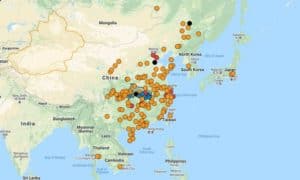 As the novel coronavirus (2019-nCoV) which originated in Wuhan, China continues to spread, people are increasingly concerned that this virus could herald the start of a pandemic infection. Little is still known about the biology of the virus, and the virulence of the infection due to limited information coming out of China. Without appropriate information about the biology of the virus, and whether or not it is mutating and evolving with time, the true scope of this disease is impossible to predict.
As the novel coronavirus (2019-nCoV) which originated in Wuhan, China continues to spread, people are increasingly concerned that this virus could herald the start of a pandemic infection. Little is still known about the biology of the virus, and the virulence of the infection due to limited information coming out of China. Without appropriate information about the biology of the virus, and whether or not it is mutating and evolving with time, the true scope of this disease is impossible to predict.
NOW is a good time to make preparations in case the disease reaches a pandemic level. Any preparations you can make will also help your family during other natural disasters (storms) or events (power outages) that disrupt your regular life and routine.
The following list is divided in to five sections so you can focus your plans on each to get a comprehensive plan together.
- WATER – The most essential and often overlooked key to planning. Don’t forget your pets!
- FOOD – Non-perishable items and foods for people with specific health needs are important
- MEDICATIONS and MEDICAL SUPPLIES/EQUIPMENT – Prescription drugs may be in short supply so see if you can get an extra 2-weeks of dosing from your physician
- HOME and FAMILY – If basic services are slowed or stopped (garbage pickup, electricity, water services), how will your family cope with the changes? What are your contingencies if someone in your home gets sick? What are your isolation protocols? Do you have cleaning and disinfecting supplies at home? What about relatives that live in other cities? Are they ready too?
- SCENARIOS – These different scenarios may be difficult to imagine and work through, but do your best to try to make a plan for changes that could affect your family to give you the peace of mind that will help you manage an emergency like a pandemic
-
WATER
- One gallon per person per day is the goal
- Water needs to be stored in containers designated JUST FOR WATER. Do NOT use milk jugs that have been rinsed out due to the potential for bacterial contamination
- Don’t forget enough water for your pets
- If someone in your family has special fluid requirements, make sure you make plans for their needs too
- If you have water delivered to your home, get a few extra 5 gallon containers
- Water storage options available at:
- wisefoodstorage.com [large and small plastic containers just for storing water]
- waterbob.com [used to safely store water from your bathtub]
- In an emergency when no other water is available, you can drink the water from your water heater, from a garden hose and from the back of a toilet HOWEVER this is not ideal and you potentially run the risk of acquiring an infection. Water can be purified with bleach, and “water straws” and containers that can purify water are available for purchase
-
FOOD
- Have a manual can opener ready if you rely on an electric one but have canned foods to eat
- Non-perishable items that don’t require cooking are great to keep in your pantry
- Peanut butter (if no peanut allergies), health bars that are high in protein and low in sugar, crackers, beef jerky (although it is high in salt)
- Focus on foods that have a high energy value and high protein
- Beans and rice (white rice cooks faster than brown) and don’t forget the water needed to cook the foods
- Grain cereals
- Whey or another type of protein
- Ensure an adequate supply (7-10 days at least) for someone who has special food requirements like prescription diets or low-salt meals
- In the event of a power outage, food will spoil quickly so decide on how you want to use your reserves to make the most out of your food supply
- Never, ever eat from a can of food that looks “swollen” or that has a bulging top or sides
- Don’t forget about your pets!
-
MEDICATIONS and MEDICAL SUPPLIES/EQUIPMENT
- If the supply chain is broken and you cannot purchase anything new, would you have an adequate supply of the medications you and your family need?
- Prescription medications (see if your doctor can prescribe an additional 2-4 week worth of a medication that is required)
- Anti-inflammatory medications for everyone in the family (including infant/child products)
- Allergy medications (prescription and non-prescription)
- If someone in your family requires medical equipment ensure you have all supplies and power needed to work the equipment properly
- Generators can be used to help with power in case of an outage. Some can be purchased that can be recharged with solar panels. Others are electric and can be run in a home.
- NEVER EVER EVER run a gas-powered generator in a garage, in your home or even near your home. Carbon monoxide poisoning (odorless gas) will result. IF you do own a gas generator, test it and know how to use it properly. Remember in a power outage, gas pumps will not work so if you rely on diesel fuel for your generator you will need extra fuel or will risk losing your power source.
- Make a list of medical supplies that you would need if someone in your home did get sick and supplies to help you get through a pandemic
- Thermometer (consider and “old fashioned” type that does not require batteries)
- Gloves (nitrile if possible)
- Masks (surgical or N95 rated)
- Alcohol-based hand sanitizer
- Bleach or other cleaner for home/bathroom
- Garbage bags and a way to dispose of waste (dirty tissues, vomit, etc.)
- Don’t forget about medications for your pets!
-
HOME and FAMILY
- When you purchase items from a store, consider wiping them down with a dilute bleach solution or anti-bacterial wipe to lessen the chance that you will bring a viral illness in to your home
- What are items you use in your home that would be hard to live without if the production and supply chain is not working? Stock up on a few items to make life easier
- Paper products (tissues, paper towels, toilet paper)
- Soap (kitchen, bath, laundry, hand)
- Hygiene products (feminine)
- Hand sanitizer
- Bleach or other household cleaner
- Home safety items if the power is out
- Flashlight/other types of lighting
- Candles are NOT safe and should ONLY be used in an emergency
- Battery or solar powered radio [see redcross.org for a hand crank/solar radio]
- Flashlight/other types of lighting
- Money as CASH – if the power is out or ATMs cannot be restocked, having a small amount of cash at home (small bills too, not just 20s) will be needed
- If you have to leave your home, make sure you have all essential family documents and irreplaceable items (identification (passports), medical records, insurance documents, photos, family heirlooms, etc.) ready for your evacuation
- You can pre-pack a Go Bag for an evacuation (see disasterdocstogo.com/resources/before/ to download a Go Bag packing list
-
SCENARIOS – These different scenarios can help you make a plan to keep your family safe
-
Do you have a family plan that everyone will follow to help remain healthy?
-
Don’t touch your face, mouth, eyes or nose. At all.
-
Wash your hands before touching your face or use a clean disposable towel to touch your face AFTER washing your hands
-
Maintain distance from anyone sick at school, work and out in public
-
Use hand gel while out in public
-
Consider wearing gloves when out in public shopping, getting gas, while at work
-
Wipe down all surfaces that can be disinfected in your home, in your car, at your workplace
-
DO NOT share food, utensils, cups, towels.
-
-
You or your significant other become sick, or you BOTH become sick
- Will you stay at home, and if so, can the sick person be isolated from the rest of the family to prevent the spread of the disease?
- ISOLATION and BARRIER PROTECTION are essential in preventing viral spread
- Gloves
- Mask
- Special clothes worn only around the sick person
- Wash and/or gel hands frequently
- Sanitizing everything that comes in to contact with the sick person
- Disposable plates/utensils are helpful
- Will the sick person go to the hospital?
- What if hospitalization is not available because it has closed or cannot accept new patients?
- Who will take care of your home?
- Who will take care of your kids?
- Who will take care of your animals?
- How will bills be paid?
- Do you have health insurance?
- Do you have a contract tree of people who could help your family (relatives, friends)?
- What if the sick adult dies at home and external services are not available to assist?
- Is there a will/living trust in place?
-
One of your children becomes sick
- Do you have a care plan in place for the child?
- Who will care for the sick child?
- Does the child have advanced medical needs that must be considered in their care?
- How will you keep your other children from getting exposed to the infection?
- If one child ends up in the hospital, is there a plan for the other parent/significant other able to manage everything else at home/work?
- What if hospitalization is not available because it has closed or cannot accept new patients?
- What if the sick child dies at home and external services are not available to assist?
- Do you have health insurance?
-
Your work closes down during the pandemic and your income is stopped
- How will your bills be paid?
- If you don’t currently have an emergency fund, how can you change your current spending habits to be able to build a small fund?
-
A family member needs medical services (PT, OT, dialysis, cancer chemotherapy) away from your home but the services are either closed down or you cannot travel
- Will the services discontinue?
- Can any therapy be done at home?
- How will the affected person be able to manage without the care that is currently provided?
-
Your child’s school closes down due to isolation protocols
- Who will care for your child?
- Can you work from home?
- Can you pair up with other families to provide child care so parents can go to work?
-
Your elderly parent(s) become sick and live in another city
- Who will provide their care?
- Will you or someone in your family travel to them?
- Will they come to your home?
- Do they have insurance and a medical care plan?
- Is there a will/living trust in place?
-
Power and water services are not available for 7-10 days
- Do you have enough water and food for your family to get through the outage?
- Do you need power in your home (for medical equipment or other)? How will you provide a power source?
- Do you have medications that require refrigeration?
- Consider purchasing a cooler run electrically that you can use with a generator if necessary (like the Igloo Iceless Thermoelectric Cooler)
-
You run out of food and water or essential medicine for your pets or your pet has a serious illness (this is especially important to consider in the care of large animals (horses, cattle, sheep, goats)
- How will you manage their care?
- What will happen if your pet passes away?
-
Your neighbor or close relative get sick and they have pets they cannot care for
- Will you take care of the pets?
- Will you help to find someone or some place to care for the animals?
- What if no care is available?
- If the sick individual passes, who will care for the pets and become their new owners?
- What happens if the sick individual dies in their home?
-
What if cell phone service is disrupted and you do not have a home phone line
- If there is an emergency, how will you notify someone?
- How will you communicate with family members who may not be at home?
- How will you communicate with work, or other business-related services?
-
How will you provide protection to your family in the event of a breakdown in police services?
- Can your community pool services and resources to help everyone?
- Do you own a firearm and ammunition? If not what options do you have for safety?
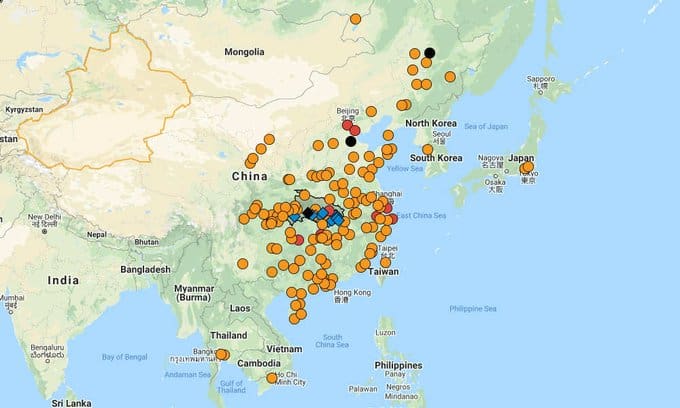
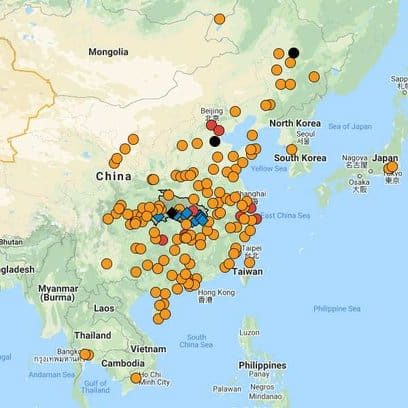
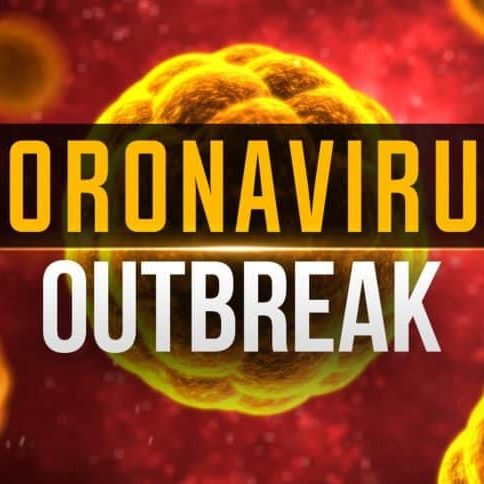
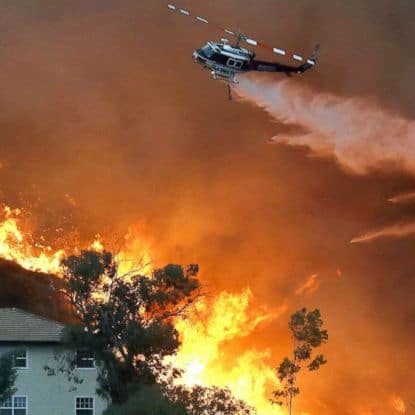
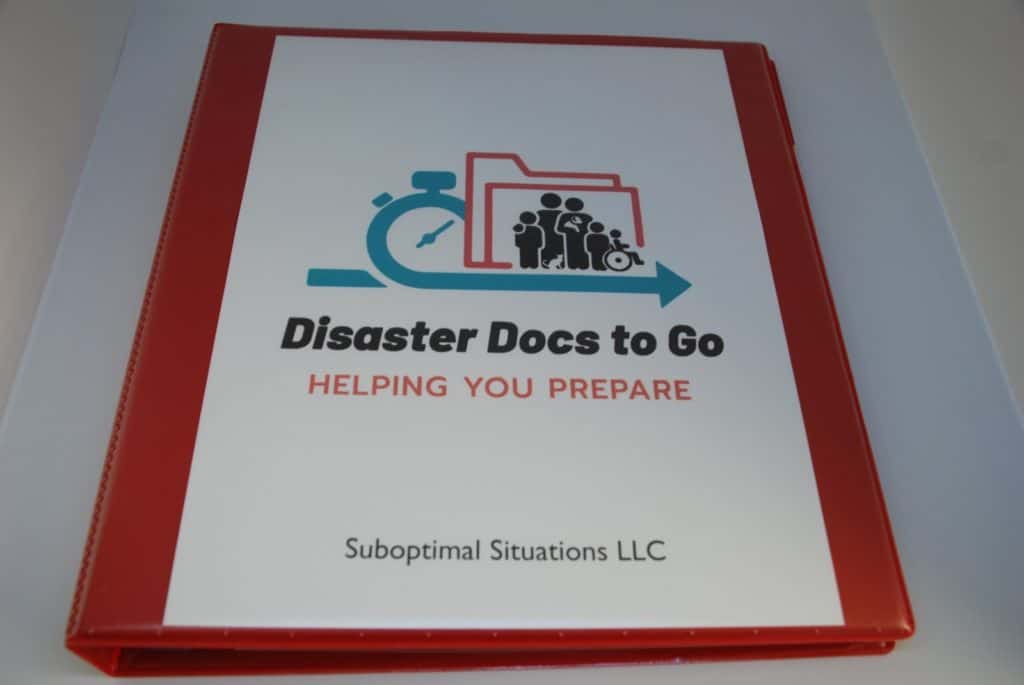
Good luck.
Cheers